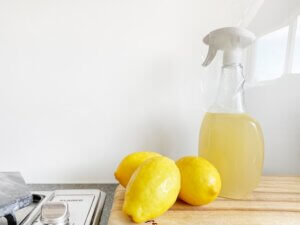Understanding Odour Molecules and Effective Odour Removal
Understanding Odour Molecules and Effective Odour Removal
Summary
This article explores odour molecules, their effects on our senses, and effective odour removal methods. AllAces Cleaning & Restoration offers valuable insights on various cleaning and restoration topics. Odour molecules, or VOCs, shape our olfactory experiences by triggering nerve impulses in our receptors. They influence emotions, memories, and social interactions. Scientists categorize them into scent families like floral and woody, adding to the complexity of smells. AllAces provides several techniques for odour removal, ensuring a fresh and healthy environment. Proper ventilation is vital to avoid health risks. With 35+ years of experience, AllAces offers expert odour removal services.
In this comprehensive article, we delve into the captivating world of odour molecules, their interaction with our senses, and effective methods of odour removal. At AllAces Cleaning & Restoration, we are dedicated to providing you with the highest quality content to ensure you gain a deep understanding of a range of cleaning and restoration topics.
Understanding Odour Molecules
Odour molecules, also known as volatile organic compounds (VOCs), are chemical substances responsible for the diverse scents that surround us. From the delightful aroma of fresh flowers to the pungent smell of decay, odour molecules play a significant role in shaping our olfactory experiences.
Perceiving Odours
To understand odour molecules and odour removal, we must explore the process of olfaction – our sense of smell. When odour molecules interact with olfactory receptors in the nasal cavity, they trigger nerve impulses that travel to the brain’s olfactory bulb. This remarkable organ processes the signals, allowing us to perceive and distinguish different smells.
The Role of Odour Molecules in Our Lives
Odour molecules have a profound impact on our daily lives. They influence our emotions, memories, and even social interactions. A pleasant scent can uplift our mood and create a welcoming atmosphere, while unpleasant odours can evoke discomfort and anxiety.
Unravelling Scent Families
Scientists have categorised odour molecules into distinct scent families, each possessing unique characteristics. These families include floral, fruity, woody, spicy, and many more. Understanding scent classifications enables us to appreciate the complexity and diversity of smells.
Odour Perception
Odour perception varies from person to person, making scent preferences highly subjective. Genetic differences in olfactory receptors contribute to this phenomenon. Moreover, individual experiences and cultural backgrounds further shape our likes and dislikes regarding specific smells.
The Connection Between Smells and Memories
One of the most remarkable aspects of odour molecules is their ability to evoke powerful memories. The olfactory bulb has direct connections to the brain’s limbic system, which governs emotions and memories. Thus, certain scents can trigger vivid recollections of past experiences.
Odour Removal Techniques
While pleasant smells enhance our surroundings, undesirable odours can disrupt our sense of comfort. At AllAces, we offer effective odour removal techniques for various settings, be it homes, cars, or workplaces. Effective odour removal techniques are essential for maintaining a pleasant and healthy environment. Several methods can help eliminate unwanted odours:
Ventilation: Proper ventilation is crucial to circulate fresh air and expel odours. Open windows and use exhaust fans to improve indoor air quality.
Activated Charcoal: Activated charcoal or carbon filters are highly effective at absorbing odour-causing molecules from the air.
Baking Soda: Placing bowls of baking soda in odour-prone areas absorbs and neutralises unpleasant smells.
White Vinegar: A natural deodoriser, white vinegar can be used to clean surfaces and eliminate odours.
Odour Absorbers: Commercial odour absorbers, like zeolite or silica gel, can be placed in closets or cupboards to remove unwanted smells.
Steam Cleaning: For odour removal from carpets and upholstery, steam cleaning can effectively lift and eliminate trapped odours.
Citrus and Essential Oils: Citrus fruits or essential oils, like lemon or lavender, can be used as natural air fresheners to mask or neutralise odours.
Hydrogen Peroxide: Effective against strong odours, hydrogen peroxide can be sprayed in areas like kitchens or bathrooms for odour removal.
Deep Cleaning: Regularly cleaning and disinfecting surfaces and fabrics helps prevent the build-up of odour-causing bacteria.
Ozone Generators: Ozone generators can neutralise odours by breaking down molecules in the air, but caution is advised as high levels of ozone can be harmful. Odour removal specialists are highly advised to use this type of equipment.
By employing these odour removal techniques, you can create a fresh and pleasant living or working environment for yourself and others.
Frequently Asked Questions (FAQs)
How do odour molecules affect our emotions?
Odour molecules influence our emotions through their direct connection to the limbic system, which regulates emotional responses. Pleasant scents can evoke positive emotions like joy and relaxation, while unpleasant odours can trigger feelings of discomfort or stress.
Can odour molecules trigger memories?
Yes, odour molecules have a unique ability to evoke memories. When we encounter a scent linked to a past experience, the olfactory bulb activates the brain’s memory centre, leading to a flood of associated recollections.
Are there any health risks associated with odour molecules?
Inhaling certain odour molecules, especially those from harmful substances, can pose health risks. Prolonged exposure to strong odours may lead to respiratory issues and other health problems. Proper ventilation and odour removal are essential for maintaining a healthy environment.
How can I remove stubborn odours from my home?
Stubborn odours can be challenging to eliminate. However, at AllAces, we offer extensive odour removal methods to ensure results.
Can scent preferences change over time?
Yes, scent preferences can change due to various factors such as aging, experiences, and cultural influences.
Is aromatherapy safe for everyone?
While aromatherapy is generally safe, some individuals may have allergies or sensitivities to certain essential oils. It’s important to test a small amount of oil before use and consult with a healthcare professional if you have any concerns.
At AllAces Cleaning & Restoration, our commitment to providing comprehensive and engaging content ensures that you gain valuable insights into numerous cleaning and restoration topics, including:
The Risks Associated with Lead Dust Cleaning
Common Challenges in Fire Damage Cleaning
Exploring Unusual Forensic Cleaning Situations
Why Choose AllAces?
AllAces Cleaning & Restoration has more than 35 years of industry experience, handling a wide range of odour remediations. Complete odour removal can be a complicated project with numerous aspects to consider, from the odour source to the timeframe. Our IICRC-certified technicians utilise advanced technology and equipment to ensure successful results with unmatched service.



